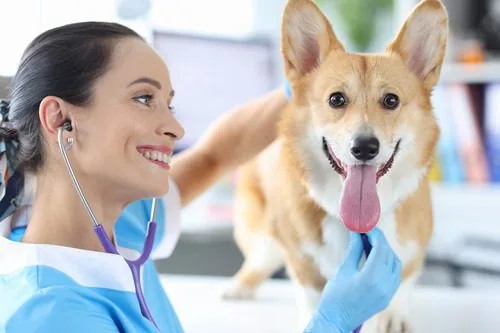Adding a Pet to Your Pack
 Dr. Janine Franco (TVV Decatur)says…. We all love having pets. They are our family members, friends and companions. Sometimes we enjoy them so much we decide that we’d like to adopt another dog or cat deserving of a great home. The tricky part comes when we are ready to introduce that new family member to the rest of our four-legged pack. There are a few simple but important things to consider and plan for when bringing a new animal into your family.
Dr. Janine Franco (TVV Decatur)says…. We all love having pets. They are our family members, friends and companions. Sometimes we enjoy them so much we decide that we’d like to adopt another dog or cat deserving of a great home. The tricky part comes when we are ready to introduce that new family member to the rest of our four-legged pack. There are a few simple but important things to consider and plan for when bringing a new animal into your family.
When adopting a kitten it is ideal to adopt more than one, especially when there is already an older cat in the house. Sometimes that older cat may not want to be tormented by a playful young kitten. Thus having 2 new kittens that can play with each other helps avoid what we call play aggression from the adoptee. Adopting 2 kittens who are related is even better, but is not a must.
Always introduce new cats to each other slowly. Keep the kitten/new cat in a room away from the other cat so that they can simply hear and smell each other, but not see each other. After a few days they can start to have supervised visits. It is important to use food as rewards for the kitten and older cat when they are together. For example, try to give the resident cat certain treats only when he is around the kitten, so that he will associate treats with the kitten’s presence. All that being said, the only real predictive indicator of a positive older cat/kitten relationship is the personality of the first cat. If he has been socialized to other cats at a young age (the prime socialization period is between 6-14 weeks of age), then that cat may have a personality compatible with befriending a new kitten.
The health of the present and new cat is extremely important. Make sure all cats are fully vaccinated, including Feline leukemia vaccine if they are going outside. The recent adoptee and owned cats should have a recent negative feline leukemia and HIV test, been dewormed, on flea prevention and deemed healthy by a veterinarian.
When introducing a puppy to a resident dog, the personality of the latter is very important. If the resident dog has a history of fighting with other dogs, you should consult with a veterinary behaviorist first. For a well socialized older dog, the meeting has a better chance of being successful. Always remember to introduce the 2 dogs on neutral territory, such as a park, and make sure they are both wearing collars and leashes. Only introduce 1 dog at a time to the puppy, if there is more than 1 resident dog. I recommend there being a person for each dog so that if there is an altercation, each person can be in charge of a dog. If they greet each other, sniff, and play, then take them on a leashed walk together. If they exhibit aggression such as showing their teeth or raising their hackles and growling, then call them away from each other.
If meeting on neutral territory was a successful and positive experience, they can try going home together. Be sure to remove any treats/toys/objects that the resident dog may try to guard before going home. If the dogs seem friendly in the house, you should still be sure that they are allowed only supervised and structured activities together for the first few weeks.
Of course, remember to make sure all dogs have been vaccinated, dewormed, are on flea prevention and have been seen recently by a veterinarian.
Introducing a new dog or cat to a family pet is a potentially anxiety-inducing situation for everyone involved. When we choose to adopt a new pet, we are choosing someone to be a member of our family for 10-15 years. Therefore, it is extremely important that our pets all get along. Following the tips outlined above will help keep tensions to a minimum and give pets the best chance at a successful introduction to any family.
Recent Posts
About The Village Vets
The Village Vets is a network of animal hospitals based in Atlanta, GA and the surrounding area. We offer honest, excellent service to our clients in a comfortable, friendly atmosphere. To learn more about our locations and how we can better serve you and your pet, click the button below.
Share This Post
Recent Posts
About The Village Vets
The Village Vets is a network of animal hospitals based in Atlanta, GA and the surrounding area. We offer honest, excellent service to our clients in a comfortable, friendly atmosphere. To learn more about our locations and how we can better serve you and your pet, click the button below.



